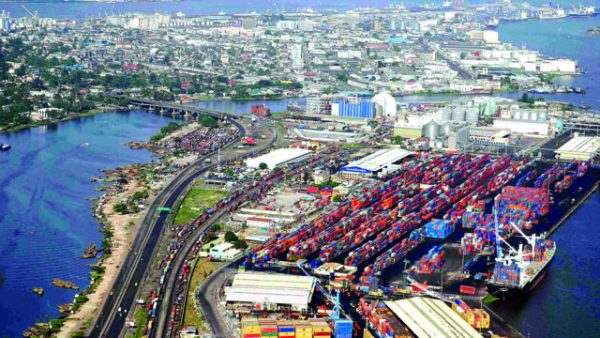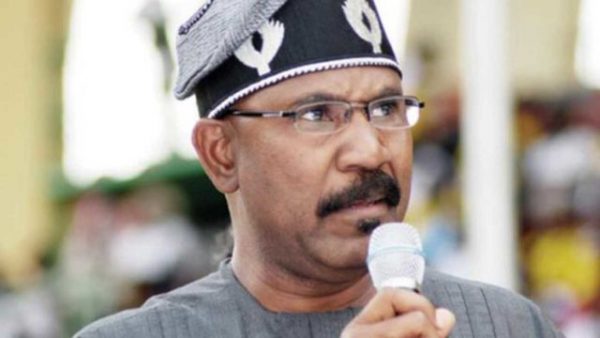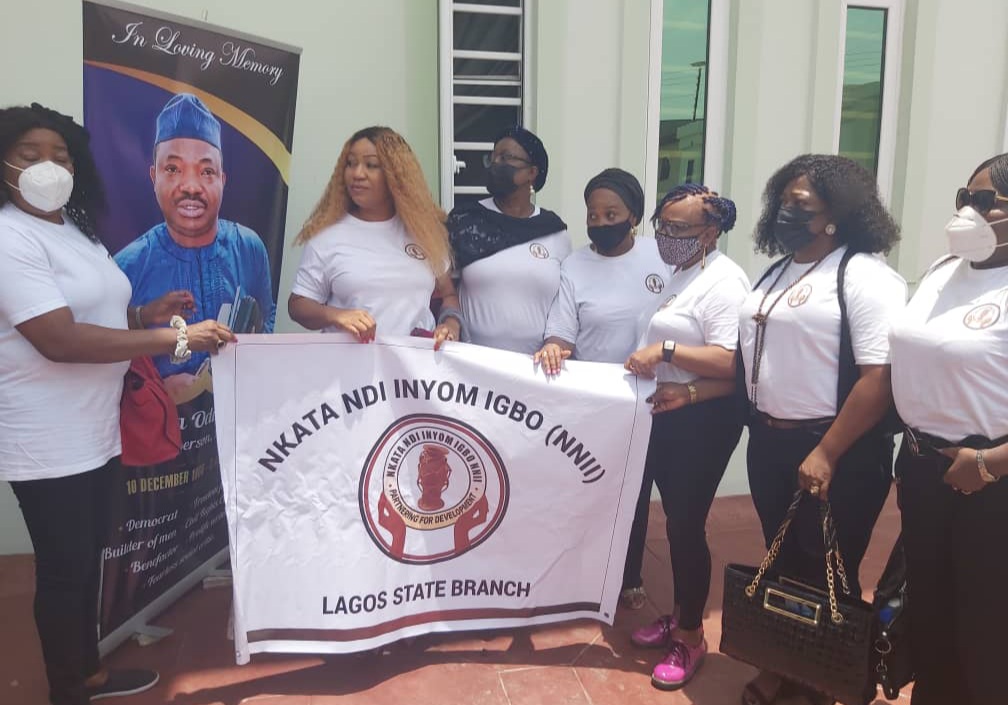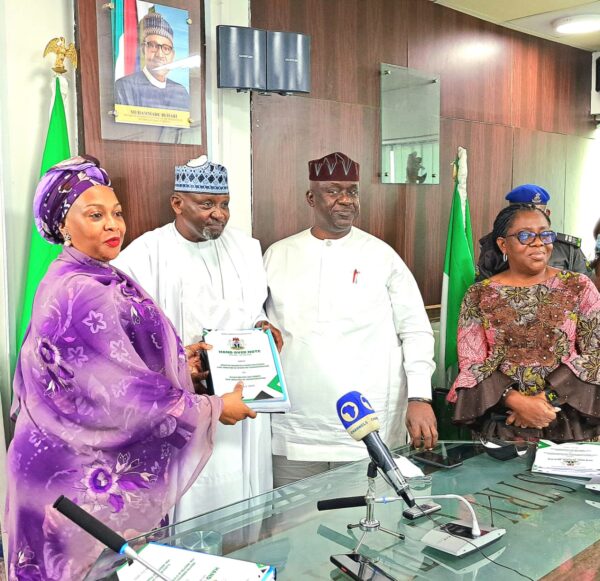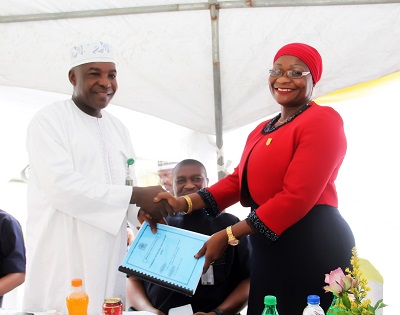Port Concession Review: NPA To Create Monitoring Team To Regulate Self
· How technical regulatory issues lead to fiscal losses
· SOLAS related deficiencies ranked highest in 2018 – Abuja MOU
By Kenneth Jukpor
As part of efforts to ensure that both parties in the ongoing port concession agreement review meet their obligations, Nigerian Ports Authority (NPA) has revealed that it would set up a monitoring committee to ensure compliance by terminal operators and the Authority.
The Managing Director of NPA, Ms. Hadiza Bala-Usman revealed this recently while stressing that the Authority had observed the need to create measures that mitigate against non-compliance to the obligations in the concession agreement.
“One of the key issues around the concession is the obligation of both parties; the Federal Government’s obligation and the obligation of the concessionaires. We need to create measures that mitigate against non-compliance to the extent that there are measures to be taken when the concessionaires or the government doesn’t meet up to its obligations. NPA will set up a monitoring committee ensure that both sides are complaint,” Usman said.
NPA reneged on some of the terms of the agreement it entered into with the concessionaires on the aspect of providing power, security, water and other sundry services as virtually all the terminal operators provide these services for themselves. At Calabar port, the non-completion of the dredging of the channel is the most critical factor limiting the development of that port. The concession agreement had stipulated that NPA maintains the draught at 9.4meters, but the draught remains at 5.4meters at low tide and 6.4meters at high tide since 2007.
With these shortcomings of NPA, one can only wonder how an NPA instituted monitoring committee would be able to hold the Authority accountable to fulfill its obligations. Would the Infrastructure Concession and Regulatory Commission (ICRC) or the Bureau of Public Enterprises (BPE) be a better umpire for the role? Why have BPE and NPA shut out other crucial port stakeholders from making input in the ongoing review of the agreement? Does Nigerian Shippers’ Council (NSC) port economic regulatory role extend to this area? Who is responsible when technical regulatory issues like power, security and draught, lead to economic losses for operators?
While Nigerian Ports Authority (NPA) has been working assiduously to ensure that the ongoing review of the port concession agreement is concluded speedily and comprehensively, there are indications that the review may not expunge the numerous challenges which plagued the maiden agreement.
On the non-disclosure agreement, the Managing Director of NPA said, “There are aspects of the concession that are confidential between Nigerian Ports Authority (NPA) and the concessionaires. We cannot reveal those aspects to stakeholders. There are aspects that stakeholders are concerned and those aspects would be discussed with the stakeholders at the appropriate time. There is a confidentiality clause which does not permit us to disclose certain aspects of the agreement and we are abiding by it”
Meanwhile, the Managing Partner, Maritime & Commercial Law Partners, Barr. Emmanuel Nwagbara shared a divergent view during an exclusive chat with MMS Plus last week, as he noted that the ongoing review without the input of stakeholders wouldn’t proffer enduring solutions.
“Any review that wouldn’t involve the input of stakeholders in the port industry wouldn’t go far. Shippers, NPA, Shippers’ Council, Terminal Operators and maritime lawyers are also stakeholders because we identified legal issues in the agreement which also needs to be addressed. I would suggest to the parties involved in the review to include other stakeholders including Shippers’ Council which is very necessary in the review committee”
“An effective port industry would make better development of the law and certainty of the law. There are issues now that were not captured in the concession agreement and that hasn’t been any regulation to take care of them,” he said.
Nwagbara also expressed worry that the fact that NPA is a party to that agreement shows that there could be conflict of interests which needs to be properly addressed if it should set up a monitoring committee.
“It is true that part of that agreement says that NPA is a regulator, but NPA cannot regulate an agreement in which it is a party. If NPA is to set up a committee to monitor compliance, it would involve a lot of areas, thus ICRC, Shippers’ Council, and NPA. The monitoring committee would have to be balanced with all crucial stakeholders properly represented to make it meaningful,” he noted.
However, the Convener of the Oil Trading and Logistics Africa Downstream Exhibition and Conference, Mr. Emeka Akabogu, maintained that as the landlord of the port, NPA has the right to ensure that the terms of the agreement are being met in the course of the tenancy.
“NPA is empowered and it is within its right to set up a monitoring team to ensure that the concessionaires abide by the terms in the contract. However, this team would be limited to the terms in that contract and no more. However, Nigerian Shippers’ Council (NSC) as the port economic regulator will be relevant but not to monitor the compliance of the concessionaires with the concession contract but with those terms outside the concession and which haven’t been taken care of in the concession” he said.
Commenting on NPA’s proposed monitoring team, Emeka who is also a Senior Partner, Akabogu & Associates, noted that the team will likely be looking out for the obligations of terminal operators and not the obligations of NPA, however he stressed that NPA has to be held to accountable for its obligations.
“Terminal operators should take advantage of their rights in the contract. Each terminal operator has a right in the contract which stipulates the consequences for breaching these rights and obligations. There are remedies and one of the remedies open to terminal operators will be to take NPA to the Court of Arbitration for the failure to discharge its obligations”
“Terminal operators can financially quantify the losses on issues like non-dredging of the ports which NPA should have done. They should seek alternatives to get NPA to compensate them for the losses which has been suffered for the non-dredging over the years” he said.
Meanwhile, for other issues which relate to tariffs and other commercial issues which affect the competitiveness of these terminals vis-à-vis their relations with other parties outside the concession contract, he stressed Shippers’ Council would be relevant as the economic regulator to oversee the compliant with the service level and other consumer issues at the ports.
“BPE and NSC can also weigh in as far as this is concerned but the fact that NPA’s responsibility needs to be accounted for does not stop NPA as a landlord from ensuring that the obligations of the tenants are met” he added.
Nevertheless, the Chairman, Nigerian Ports Consultative Council, Otunba Kunle Folarin posited that it wasn’t NPA’s fault that it has been saddled with the arduous task of regulating a concession agreement where it was also a party.
He lamented that the Bureau of Public Enterprises (BPE) should be queried for presiding over the initial agreement which led to such scenario.
“On what premise is NPA wrong if it intends to have a monitoring committee when the law says it’s should monitor? Won’t you fault them for not doing their work if they don’t monitor? This doesn’t mean that NPA cannot be held accountable to keep its end of the concession agreement” he said.
Noting that Shippers’ Council wasn’t a port economic regulator when the initial port concession was carried out, Otunba Folarin noted that the onus to invite other stakeholders such as Shippers’ Council to be part of the concession review rests squarely on BPE.
Meanwhle, according to the statistics issued by the Abuja Memorandum of Understanding on Port State Control for West and Central African Region, Safety of Lives at Sea (SOLAS) related deficiencies ranked highest with 52.54% of all deficiencies recorded in 2018.
The body also reported that the number of detentions decreased from 16 cases in 2017 to 14 in 2018. The detentions recorded were: 21.42% each for oil tankers and chemical tankers, 14.29% for offshore supply and 7.14% each for bulk carrier, general cargo/ multipurpose, passenger ship, refrigerated cargo, tugboat and other special activities.
The Abuja-MOU report revealed that 2409 inspections were carried out on 1916 individual ships. 14 of these vessels were detained for deficiencies during the year, resulting in a 12.5% decrease in the number of detentions.
While the detention percentage per inspection of 0.58% in 2018 gives a 24.7% decrease below the 0.77% recorded in 2017. The spread of one deficiency for every year 3.5 inspections in 2017 decreased to 3.3 inspections per deficiency in 2018, the region recorded a 16.2% increase in inspection efforts from 2074 in 2017, where 13 Administrations submitted reports, to 2409 inspections in 2018 with 14 Administrations reporting.
A total of 727 deficiencies were recorded which is higher than the 2017 figure of 587. Correspondingly, the total number of 224 inspections with deficiencies is higher than the 174 figures of 2017. The percentage inspections-with-deficiencies of 9.29 in 2018 gives a 10.7% increase over the 2017 figures of 8.39.

